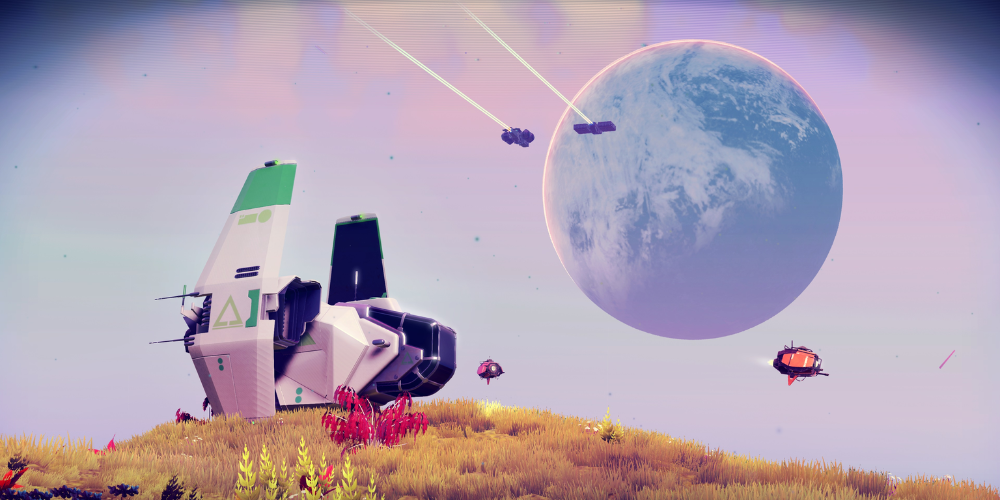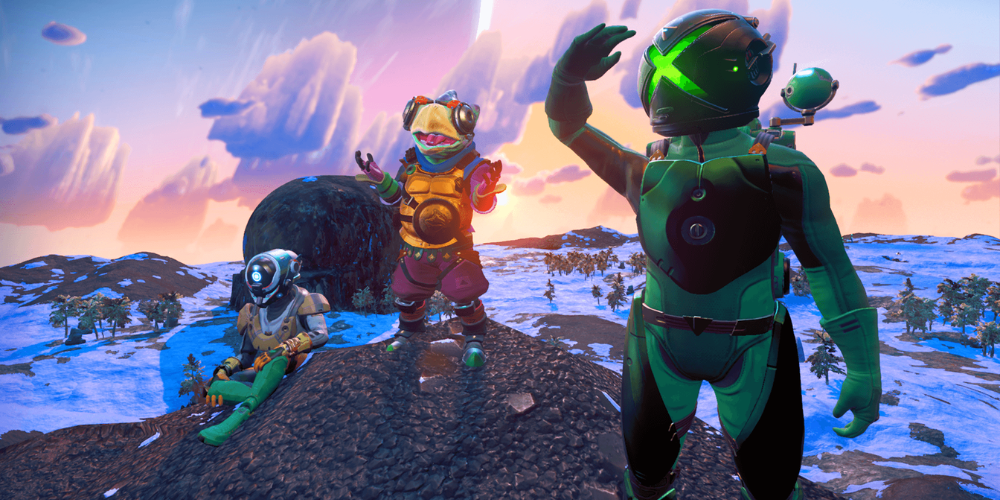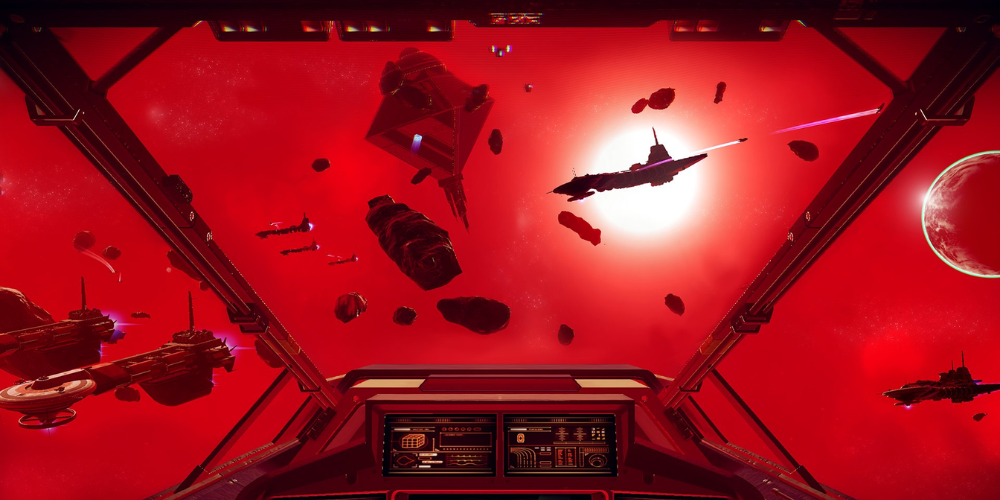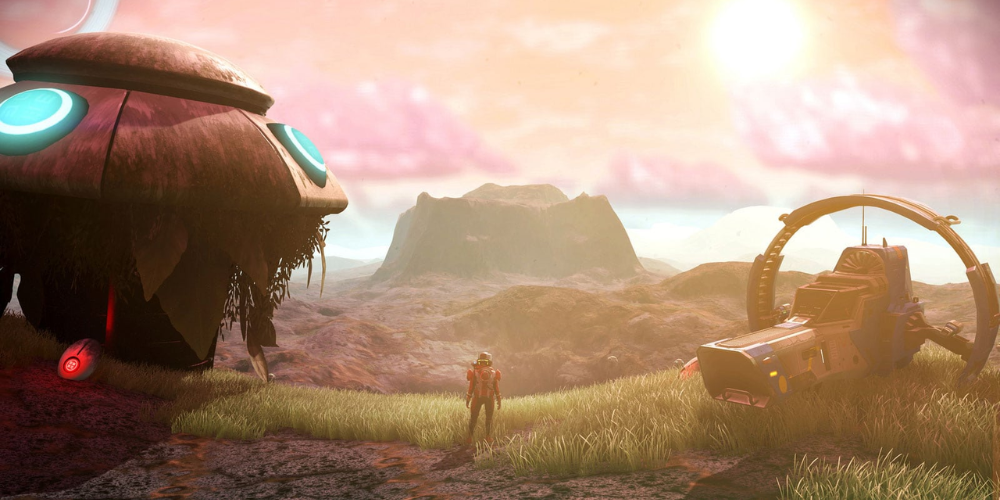No Man's Sky: The Evolution of Space Exploration

When it comes to ambitious video games that have morphed significantly post-launch, few can rival the epic space exploration adventure known as No Man's Sky. Developed by the indie studio Hello Games, it presented a vast, procedurally generated universe with the promise of endless exploration, discovery, and survival. Originally released in 2016, the game's journey from its tumultuous launch to becoming one of the most remarkable comeback stories in gaming history is a tale of resilience, community, and relentless innovation by its creators. This article delves into the evolution of No Man's Sky, showcasing how it transformed into a paradigm of space exploration and virtual wanderlust.
Launch and Early Challenges
No Man's Sky set forth an ambitious vision upon its release: a game with over 18 quintillion planets, each with unique flora, fauna, and ecosystems, offering infinite exploration to players. However, the reality at launch fell short of many players' expectations and pre-release promises. Key features like multiplayer interactions, diverse planetary biomes, and dynamic events were lacking, leading to widespread disappointment and criticism. At this challenging outset, Hello Games faced a crucial decision—abandon the project or commit to realizing the game's full potential.
Commitment to Growth and the Foundation Update
Choosing to stay the course, Hello Games embarked on what would become a monumental effort to overhaul and improve No Man's Sky. The first major step in this journey was the Foundation Update, released in November 2016. This update laid the groundwork for future improvements by introducing base building, allowing players to construct their outposts on planets. It also added two new gameplay modes: Creative, letting players build without limits, and Survival, offering a more challenging experience. The Foundation Update marked the beginning of No Man's Sky's transformation, signaling the developers' dedication to their vision and their community.
The Path Finder and Atlas Rises Updates

The momentum continued with the Path Finder Update in March 2017, introducing planetary vehicles for faster surface exploration, base sharing, and visual upgrades making the universe even more engaging. However, it was the Atlas Rises Update in August 2017 that truly began to reshape the game into the vision originally promised. This Update brought a 30-hour narrative, overhauled planetary biomes for more diversity, improved visual fidelity, and, most importantly, the first iteration of multiplayer functionality. Atlas Rises was a turning point, indicating that Hello Games was not just fixing No Man's Sky but expanding it in exciting new directions.
Next: A New Era of Exploration
In July 2018, the No Man's Sky NEXT update was launched, heralding what many considered a new era for the game. This comprehensive overhaul introduced full multiplayer support, allowing friends and strangers to explore the universe together for the first time. It revamped the game's graphics, added a third-person perspective, and significantly expanded base-building capabilities, including the ability to build underwater bases. NEXT breathed new life into No Man's Sky, fulfilling many of the promises made before its release and inviting both old and new players to delve into its universe.
Continuing Evolution: Beyond and Exo Mech Updates

Despite the leaps made with NEXT, Hello Games kept pushing boundaries. The Beyond update in August 2019 doubled down on the social aspects by introducing the Nexus, a multiplayer hub where players can meet, team up for missions, or simply show off their gear. It also expanded the game's VR capabilities and introduced creature taming and riding, adding even more depth to the gameplay experience. In April 2020, the Exo Mech Update brought fully pilotable mechanical suits, enabling players to explore dangerous environments in style and safety. These updates showcased No Man's Sky's evolution from a solitary exploration game to a rich, shared universe full of possibilities.
The Origins Update: Rebirth of a Universe
In what could be seen as the rebirth of the No Man's Sky universe, the Origins Update in September 2020 dramatically expanded the diversity of the game's worlds. New planetary types with stunning landscapes, flora, fauna, and weather conditions were introduced alongside colossal buildings and ancient alien lifeforms. This Update radically changed the exploration experience, ensuring that even veteran explorers would find new wonders. Origins signified not just another step in the game's evolution but a profound deepening of its core promise of infinite exploration.
Expanding Horizons: Companions, Prisms, and Frontiers Updates

Further enriching the player experience, the Companions Update in February 2021 allowed players to adopt and raise their alien pets, each with unique personalities and abilities. The Prisms Update in June 2021 enhanced the game's visuals with significant graphical improvements, including better lighting effects, more detailed environments, and additional biodiversity. The Frontiers Update, released in September 2021, introduced procedurally generated towns on planets where players can take on the role of overseer, manage the town, and interact with its inhabitants. Each of these updates not only added new features but also refined the game's existing systems to create a more immersive and engaging universe.
The Next Frontier: Expeditions and the Future
With the introduction of Expeditions in March 2021, No Man's Sky added time-limited, community-focused challenges that bring players together to achieve common goals, explore the universe in new ways, and earn unique rewards. As No Man's Sky continues to expand with more updates, including the recent Frontiers, players are eager to see what new horizons Hello Games will explore. The studio's commitment to growing and improving the game, coupled with the community's passion and feedback, suggests that the journey through the stars is far from over.
Conclusion: A Universe Unfolding
The evolution of No Man's Sky is a testament to the vision and perseverance of Hello Games. From a rocky launch to becoming a beacon of how continuous development and community engagement can create a sprawling, dynamic universe, No Man's Sky stands as a unique piece in the history of video games. It has become more than just a game; it's a continuously unfolding universe that players can explore, shape, and share. As we look to the future, the possibilities of what No Man's Sky may become are as boundless as the universe it encompasses.







